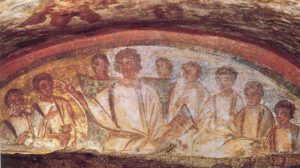Understanding Reformation humanism

humanism is a philosophical stance that emphasizes the individual and social potential, and agency of human beings, whom it considers the starting point for serious moral and philosophical inquiry. It’s important to note that the impact of medieval humanism on Christianity was complex and multifaceted. While some saw it as a threat to Church authority, others saw an opportunity for renewal and reform.
Medieval humanism in the late Middle Ages had a profound impact on the Christian religion, particularly in its relationship with early Christian writings:
- Increased Interest in Early Christian Texts: Humanists valued the study and translations of early Christian writings like the Church Fathers, patristic literature, and scripture. They believed these works could offer valuable insights into theology, history, and philosophy.
- Critical Examination of Tradition: Humanists applied critical thinking skills to analyze and question previously accepted interpretations and doctrines. This led to debates about the authenticity of certain texts, the accuracy of translations, and the evolution of Christian beliefs over time. For example, humanist scholar Lorenzo Valla challenged the Donation of Constantine, a medieval document justifying papal authority, by exposing its historical inaccuracies.
- Emphasis on Original Languages: Humanists believed accessing ancient texts in their original languages (Greek, Hebrew, Latin) was crucial for accurate understanding. The humanist scholar Desiderius Erasmus produced a critical edition of the Greek New Testament that challenged the Vulgate Latin translation used by the Church for centuries.
- Shift in Theological Focus: Studying early Christian writings led to a renewed emphasis on individual interpretation of scripture and a questioning of rigid scholastic theology. Martin Luther relied on early Christian ideas to challenge papal authority, sparking the Protestant Reformation.
Ultimately, medieval humanism played a significant role in shaping the religious landscape of Europe and laid the groundwork for the Reformation.
